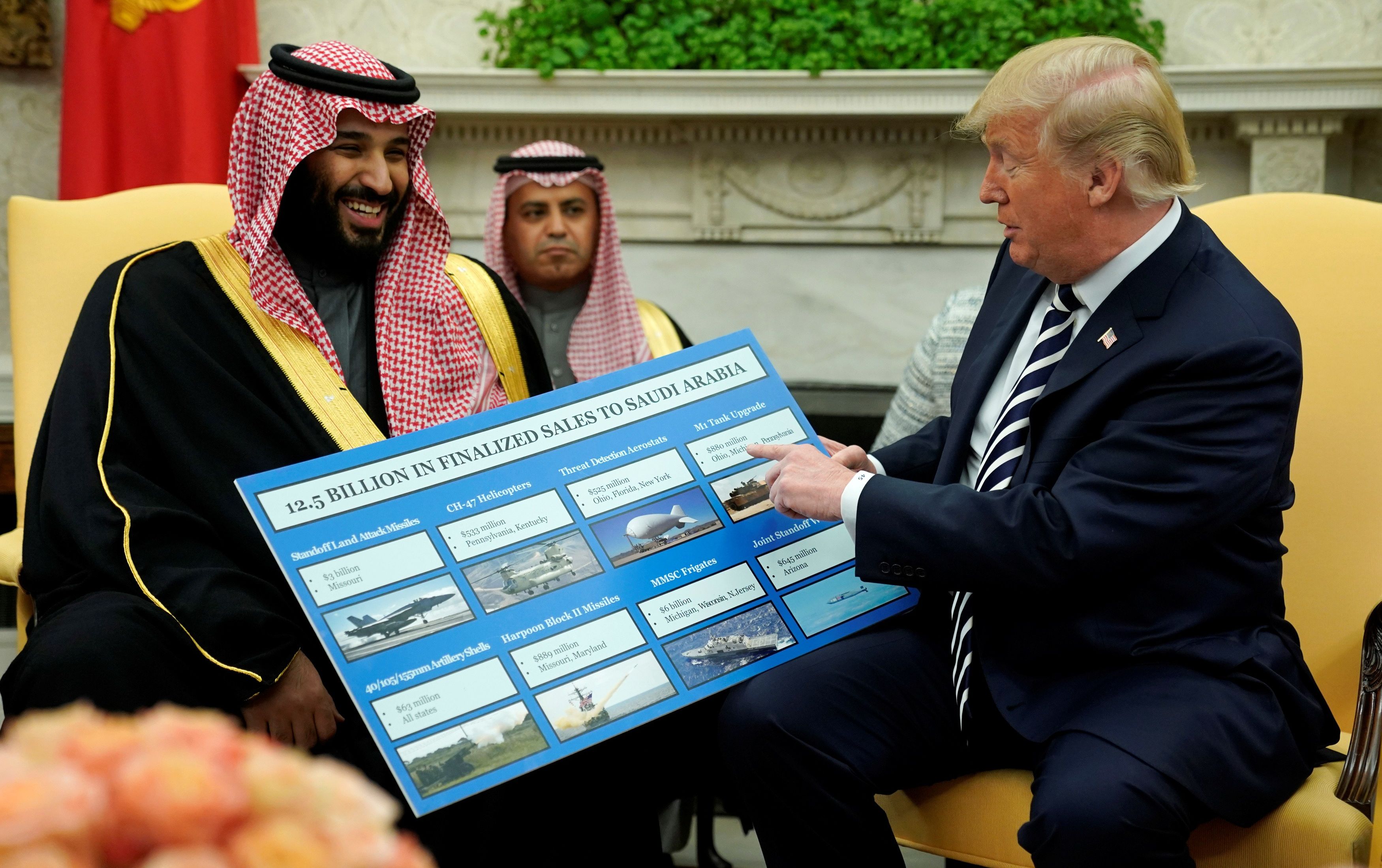The Biden administration has left President Trump a surprisingly low bar when it comes to improving U.S. arms trade restraint. Unfortunately and dangerously, the Trump administration is likely to lower the bar even further.
On paper, many Biden-era arms trade policies sounded good to advocates for human rights and protection of civilians. His administration’s Conventional Arms Transfer (CAT) policy more fully elevated human rights concerns in part by calling for a halt to authorizations for transfers when certain harms were “more likely than not” — an improvement over previous approaches. Also positive were support for an international Political Declaration on the use of explosive weapons in populated areas, as well as Department of Defense and State policies on civilian protection such as CHMR-AP and CHIRG. Even NSM-20 was a notionally good policy in that it appeared to create a path to holding countries accountable for using weapons improperly. Plus, Biden reversed the first Trump administration’s stance on landmines and once again made it U.S. policy to eventually accede to the Mine Ban Treaty.
While these policies were often laudatory in writing, actual practice was devastating. The Biden administration’s contortions to not implement U.S. law that should have led to a halt on some (if not all) security assistance to Israel was the most high profile abandonment of a policy of restraint. So too were decisions to supply cluster munitions and landmines to Ukraine, weapons that the majority of countries — including a majority of NATO allies — had long agreed should be banned and that the United States had not used or transferred for more than a decade. The Biden administration also eventually continued arms transfers to rights-violating regimes in the Middle East, including Egypt and Saudi Arabia.
Receiving less attention was the sheer volume of arms transfers proposed and conducted under his administration. The latest State Department factsheet revealed that fiscal year 2024 arms transfers were “the highest ever annual total of sales and assistance provided to our allies and partners” via the Foreign Military Sales (FMS) process (emphasis is in the original document). FMS values were more than $100 billion in FY 2024 with a staggering $845 billion in open cases. More than $200 billion in authorizations were made via the separate Direct Commercial Sales process. The Forum’s tracking of FMS notifications by calendar year (as opposed to fiscal year), found nearly $146 billion in FMS sales were notified to Congress last year.
Trump is likely to aim to go higher. In 2017, his first international trip was to the Middle East where he announced $110 billion in arms sales to Saudi Arabia. Although that figure was inflated, it showed what would be a hallmark of his first term, which was the promotion of U.S. arms trade, including to autocratic regimes in the Middle East. He ended his term notifying Congress of more than $134 billion in potential FMS sales in 2020 (a figure higher than Biden’s 2024 totals when adjusted for inflation) that included $10 billion in F-35 sales to the United Arab Emirates that Biden slow-walked, with the deal collapsing.
Could Trump revive the deal? The UAE may have indicated before the election it would not be interested, but former State Department official Josh Paul said this month it’s one to watch.
Now, just a week into the second Trump presidency, all signs are pointing to a return to relatively unrestrained arms sales and even less concern for human rights.
One of the administration’s first actions was a 90-day suspension on foreign aid, but with an exemption for military assistance to Egypt and Israel. The Trump administration has already acted to remove sanctions on Israelis undermining peace in the West Bank and appears to have abandoned the Biden administration’s hold on the provision of 2,000-pound bombs to Israel, jettisoning what little restraint had remained. The Defense Department’s Civilian Protection Center of Excellence also appears to be in jeopardy. And while Biden administration National Security Memorandums are only under review, it would be sound logic to predict that both NSM-20 and NSM-18 (Biden’s CAT policy) may be rescinded.
Trump’s claim to end the war in Ukraine as he took office obviously has not occurred, but his approach could involve much less U.S. support to the country. (No waiver was provided for Ukraine in the current suspension of new foreign aid.) Oddly, this might mean the U.S. no longer provides landmines and cluster munitions.
That improvement is unlikely to undo the damage the United States is causing to humanitarian disarmament treaties and multilateralism more broadly. Trump loosened restraint on both weapons in his first term, and there is no reason to expect an about face to support the Mine Ban Treaty or Convention on Cluster Munitions now. Plus, he has put a 90-day pause on humanitarian demining — a staggering stark example of heavy-handed ineptitude as the United States has done good work in demining globally for decades with strong bi-partisan congressional support.
Regarding the Arms Trade Treaty, Trump rejected it in his first term and the Biden administration failed to undo Trump’s denial of U.S. signature to the treaty. This will almost certainly leave the United States even more on the outside of the core international agreement aimed at making the arms trade more responsible.
Trump, of course, prides himself on being unpredictable, and anything written today may quickly appear dated as new developments take center stage. But, in so many ways, Trump is making clear that the multilateral system as currently established will not receive support as, for example, he strives to pull the United States out of the Paris climate accord and the World Health Organization.
In his first term, Donald Trump took a transactional and unrestrained approach to the arms trade while undermining multilateral efforts at control, and multilateralism more broadly. He is quickly on his way to doing so again in 2025.This article was republished with permission from the Forum on the Arms Trade.
















